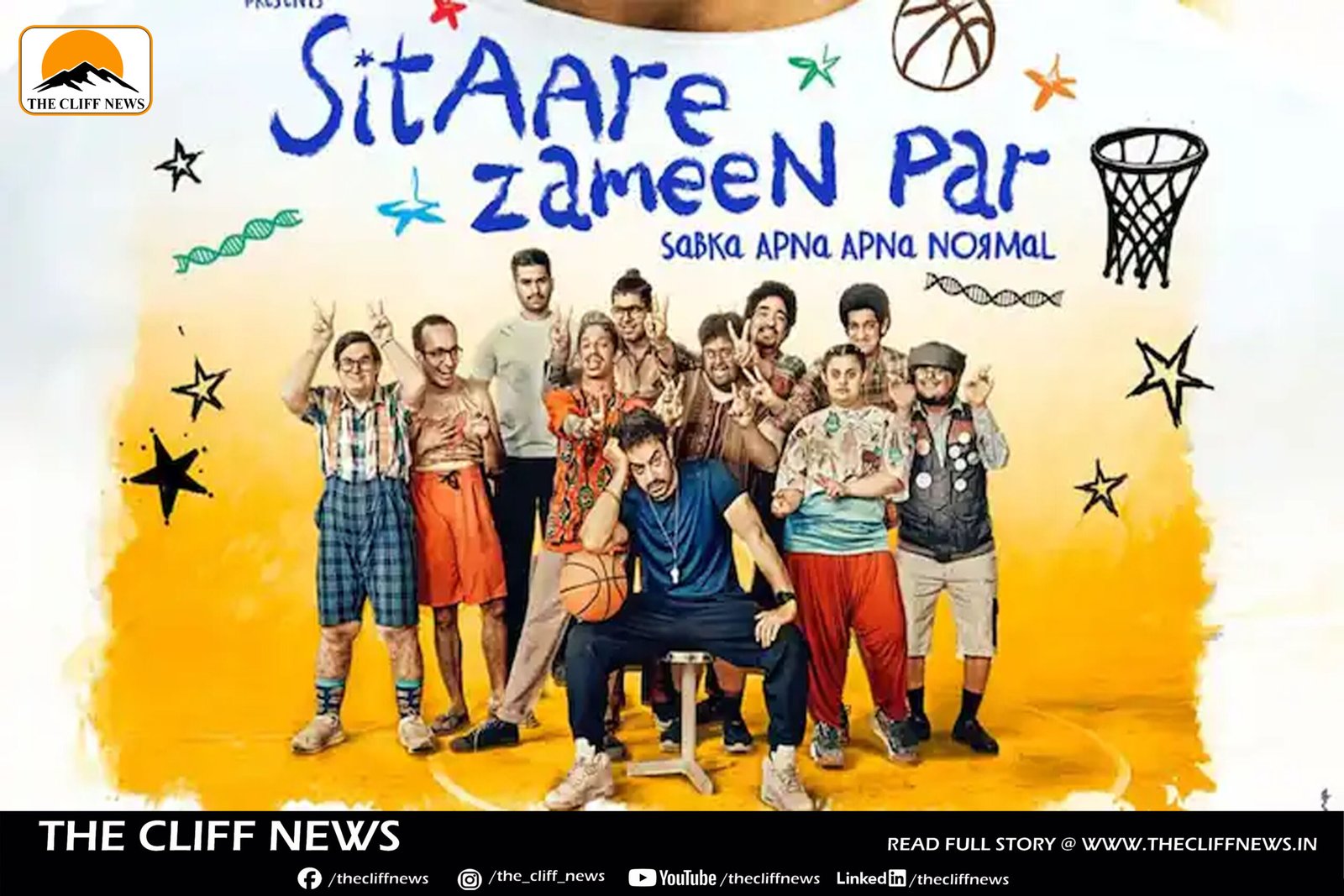In Sitaare Zameen Par, Aamir Khan attempts a spiritual sequel to his 2007 classic Taare Zameen Par, but the glow of his well-intentioned halo proves hard to dim — or ignore.
While there’s a clever moment of self-awareness when a neurodivergent player interrupts Khan’s overbearing pep talk with a blunt “Sir, pehle aap chup rahiye,” the film rarely sustains that honesty. Adapted from the 2018 Spanish film Campeones, this version carries a familiar Khan-brand morality, packaging neurodiversity into feel-good inspiration rather than fully realized human experience.
Unlike the poignant arc of Ishaan Awasthi in Taare, the ensemble here is largely flattened into cheerful caricatures. Only Hargovind (Naman Misra) gets any substantial development. Others are reduced to smiling montages, serving more as teaching tools than people. This approach raises the question: are we being asked to empathize, or simply applaud from a distance?
Khan, as always, centers himself — often to the film’s detriment. His character Gulshan is supposedly on a journey, but the real journey is always the audience’s, steered by Khan’s guiding hand, complete with callbacks to his own past hits. The film tries to have fun — poking at his height, staging comic mishaps — but in the end, it defaults to the same familiar sermon.
Director R.S. Prasanna and writer Divy Nidhi Sharma craft a clean, polite, and overly safe portrayal of neurodivergence. The chaos, conflict, and discomfort that inclusion actually demands are mostly absent. Sitaare may teach, but it doesn’t challenge — and therein lies its limitation.
Verdict:
A well-meaning, watchable film that doesn’t trust the audience — or its characters — enough to go beyond the lesson plan. Aamir Khan remains India’s favorite schoolteacher, halo intact, blackboard always ready. But maybe, just maybe, it’s time to let someone else take the chalk.



